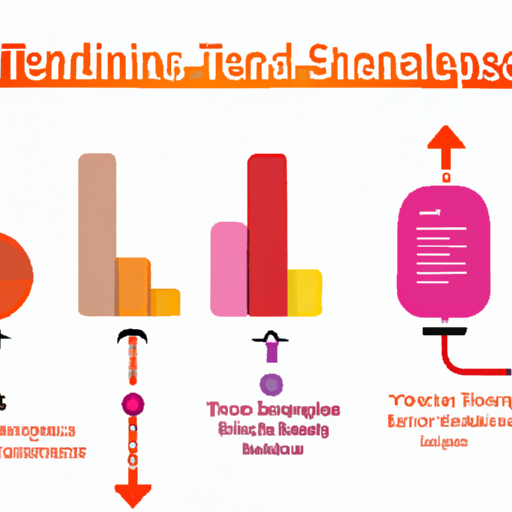What are the development trends in the smart capacitor industry?
Development Trends in the Smart Capacitor Industry
I. Introduction
A. Definition of Smart Capacitors
Smart capacitors are advanced electronic components that not only store electrical energy but also incorporate intelligent features that enhance their functionality. Unlike traditional capacitors, which serve a passive role in circuits, smart capacitors are equipped with sensors, communication interfaces, and processing capabilities that allow them to monitor and manage energy flow in real-time.
B. Importance of Smart Capacitors in Modern Technology
In an era where energy efficiency and sustainability are paramount, smart capacitors play a crucial role in optimizing power systems. They are integral to various applications, from renewable energy systems to electric vehicles, enabling better energy management, improved performance, and reduced operational costs.
C. Overview of the Smart Capacitor Industry
The smart capacitor industry is rapidly evolving, driven by technological advancements and increasing demand for energy-efficient solutions. This blog post will explore the development trends shaping this industry, including historical context, current market dynamics, technological innovations, regulatory considerations, challenges, and future predictions.
II. Historical Context
A. Evolution of Capacitor Technology
Capacitors have been a fundamental component in electrical engineering since the 18th century. Initially, they were simple devices used for energy storage. Over the decades, advancements in materials and manufacturing processes have led to the development of various capacitor types, including electrolytic, ceramic, and film capacitors.
B. Transition from Traditional to Smart Capacitors
The transition to smart capacitors began in the late 20th century with the advent of digital technology. The integration of microcontrollers and sensors into capacitor designs marked the beginning of a new era, allowing for real-time data collection and analysis. This shift has enabled capacitors to become active participants in energy management systems rather than mere passive components.
C. Key Milestones in the Development of Smart Capacitors
Significant milestones in the development of smart capacitors include the introduction of capacitors with built-in monitoring capabilities, the use of advanced materials like graphene and nanomaterials, and the incorporation of IoT technologies. These innovations have paved the way for smarter, more efficient energy storage solutions.
III. Current Market Landscape
A. Overview of the Smart Capacitor Market
1. Market Size and Growth Projections
The smart capacitor market is experiencing robust growth, driven by increasing demand for energy-efficient solutions across various sectors. According to recent market research, the global smart capacitor market is projected to reach USD 5 billion by 2025, growing at a CAGR of over 10% from 2020 to 2025.
2. Key Players and Competitors
Key players in the smart capacitor industry include major electronics manufacturers such as Siemens, ABB, Schneider Electric, and Eaton. These companies are investing heavily in research and development to enhance their product offerings and maintain a competitive edge.
B. Applications of Smart Capacitors
1. Renewable Energy Systems
Smart capacitors are essential in renewable energy systems, such as solar and wind power, where they help manage energy storage and distribution. They enable better integration of renewable sources into the grid, improving reliability and efficiency.
2. Electric Vehicles
In the electric vehicle (EV) sector, smart capacitors play a vital role in energy management systems, enhancing battery performance and extending vehicle range. Their ability to quickly charge and discharge energy makes them ideal for EV applications.
3. Consumer Electronics
Smart capacitors are increasingly used in consumer electronics, where they contribute to energy efficiency and performance optimization. Devices such as smartphones, laptops, and smart home appliances benefit from the enhanced capabilities of smart capacitors.
4. Industrial Automation
In industrial automation, smart capacitors are used to improve the efficiency of machinery and equipment. They help stabilize power supply, reduce energy consumption, and enhance the overall performance of automated systems.
IV. Technological Advancements
A. Integration of IoT and Smart Technologies
1. Real-time Monitoring and Control
The integration of IoT technologies into smart capacitors allows for real-time monitoring and control of energy systems. This capability enables users to track performance metrics, identify inefficiencies, and make data-driven decisions to optimize energy usage.
2. Data Analytics and Predictive Maintenance
Smart capacitors equipped with data analytics capabilities can predict potential failures and maintenance needs, reducing downtime and operational costs. This predictive maintenance approach enhances the reliability and longevity of energy systems.
B. Enhanced Materials and Manufacturing Processes
1. Nanotechnology in Capacitor Design
Nanotechnology is revolutionizing capacitor design by enabling the development of smaller, more efficient components. Nanomaterials enhance energy density and performance, allowing for the creation of compact smart capacitors that meet the demands of modern applications.
2. Eco-friendly Materials and Sustainability
Sustainability is a growing concern in the capacitor industry. Manufacturers are increasingly adopting eco-friendly materials and processes to reduce environmental impact. This trend aligns with global efforts to promote sustainable practices in technology.
C. Miniaturization and Increased Efficiency
1. Size Reduction Techniques
Miniaturization is a key trend in the smart capacitor industry, driven by the demand for smaller, more efficient devices. Techniques such as advanced manufacturing processes and innovative materials are enabling the production of compact capacitors without compromising performance.
2. Energy Density Improvements
Improvements in energy density are crucial for the development of high-performance smart capacitors. Enhanced materials and design techniques are allowing manufacturers to create capacitors that store more energy in a smaller footprint, making them ideal for various applications.
V. Regulatory and Environmental Considerations
A. Impact of Regulations on Smart Capacitor Development
Regulatory frameworks play a significant role in shaping the smart capacitor industry. Governments worldwide are implementing regulations aimed at promoting energy efficiency and reducing carbon emissions. Compliance with these regulations is driving innovation and development in smart capacitor technology.
B. Sustainability Trends in the Industry
1. Recycling and Lifecycle Management
Sustainability trends are pushing the industry towards better recycling and lifecycle management practices. Manufacturers are exploring ways to recycle materials used in smart capacitors, reducing waste and promoting a circular economy.
2. Reducing Carbon Footprint
Efforts to reduce the carbon footprint of manufacturing processes are gaining traction. Companies are investing in cleaner production methods and sustainable materials to minimize their environmental impact.
VI. Challenges Facing the Smart Capacitor Industry
A. Technical Challenges
1. Reliability and Longevity
One of the primary technical challenges facing the smart capacitor industry is ensuring reliability and longevity. As capacitors become more complex, maintaining their performance over time becomes increasingly difficult.
2. Cost of Advanced Materials
The use of advanced materials, while beneficial for performance, can significantly increase production costs. Balancing cost and performance is a critical challenge for manufacturers in the smart capacitor industry.
B. Market Challenges
1. Competition from Alternative Technologies
The smart capacitor industry faces competition from alternative energy storage technologies, such as batteries and supercapacitors. As these technologies continue to evolve, smart capacitors must demonstrate their unique advantages to maintain market share.
2. Consumer Awareness and Adoption
Consumer awareness and adoption of smart capacitor technology remain challenges. Educating consumers about the benefits and applications of smart capacitors is essential for driving market growth.
VII. Future Trends and Predictions
A. Emerging Technologies and Innovations
1. Artificial Intelligence in Capacitor Management
The integration of artificial intelligence (AI) in capacitor management systems is an emerging trend. AI can enhance predictive maintenance, optimize energy usage, and improve overall system performance.
2. Advanced Energy Storage Solutions
The development of advanced energy storage solutions, including hybrid systems that combine smart capacitors with other technologies, is expected to gain traction. These solutions will offer enhanced performance and efficiency for various applications.
B. Market Expansion Opportunities
1. Emerging Markets and Applications
Emerging markets, particularly in Asia and Africa, present significant growth opportunities for the smart capacitor industry. As these regions invest in infrastructure and renewable energy, the demand for smart capacitors is expected to rise.
2. Collaborations and Partnerships
Collaborations between manufacturers, technology providers, and research institutions will drive innovation in the smart capacitor industry. Strategic partnerships can facilitate the development of new technologies and expand market reach.
VIII. Conclusion
A. Summary of Key Trends
The smart capacitor industry is undergoing significant transformation, driven by technological advancements, market demand, and regulatory pressures. Key trends include the integration of IoT technologies, enhanced materials, miniaturization, and sustainability efforts.
B. The Future Outlook for the Smart Capacitor Industry
The future of the smart capacitor industry looks promising, with continued growth expected as demand for energy-efficient solutions rises. Emerging technologies and market expansion opportunities will further propel the industry forward.
C. Final Thoughts on the Importance of Smart Capacitors in Technological Advancement
Smart capacitors are at the forefront of technological advancement, playing a vital role in optimizing energy systems and promoting sustainability. As the industry continues to evolve, smart capacitors will remain essential components in the quest for a more efficient and sustainable future.
IX. References
A. Academic Journals
- Journal of Power Sources
- IEEE Transactions on Power Electronics
B. Industry Reports
- MarketsandMarkets: Smart Capacitor Market Report
- Grand View Research: Smart Capacitors Market Analysis
C. Market Research Studies
- Research and Markets: Global Smart Capacitor Market Research
- Technavio: Smart Capacitor Market Trends and Forecasts
---
This blog post provides a comprehensive overview of the development trends in the smart capacitor industry, highlighting the historical context, current market landscape, technological advancements, challenges, and future predictions. Each section offers insights into the factors shaping this dynamic industry, emphasizing the importance of smart capacitors in modern technology.



